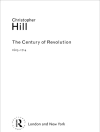In recent decades historians have emphasized just how dynamic and varied early modern Europe was. Previously held notions of monolithic and static societies have now been replaced with a model in which new ideas, different cultures and communities jostle for attention and influence. Building upon the concept of interaction, the essays in this volume develop and explore the idea with specific reference to the ways in which diasporas could act as translocal societies, connecting worlds and peoples that may not otherwise have been linked. The volume looks at the ways in which diasporas or diasporic groups, such as the Herrnhuters, the Huguenots, the Quakers, Jews, the Mennonites, the Moriscos and others, could function as intermediaries to connect otherwise separated communities and societies. All contributors analyse the respective groups’ internal and external networks, social relations and the settings of social interactions, looking at the entangled networks of diaspora communities and their effects upon the societies and regions they linked through those networks. The collection takes a fresh look at early modern diasporas, combining religious, cultural, social and economic history to better understand how early modern communication patterns and markets evolved, how consumption patterns changed and what this meant for social, economic and cultural change, how this impacted on what we understand as early developments towards globalization, and how early developments towards globalization, in turn, were constitutive of these.
Dagmar Freist & Susanne Lachenicht
Connecting Worlds and People [PDF ebook]
Early modern diasporas
Connecting Worlds and People [PDF ebook]
Early modern diasporas
购买此电子书可免费获赠一本!
语言 英语 ● 格式 PDF ● 网页 164 ● ISBN 9781317162018 ● 编辑 Dagmar Freist & Susanne Lachenicht ● 出版者 Taylor and Francis ● 发布时间 2016 ● 下载 3 时 ● 货币 EUR ● ID 5021476 ● 复制保护 Adobe DRM
需要具备DRM功能的电子书阅读器












